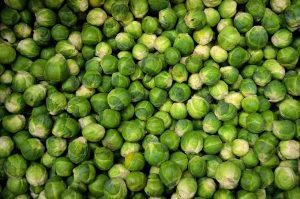Seasonal Food Procurement: A smarter way to source
Balancing costs, sourcing and ordering is at the forefront when it comes to the food service and hospitality landscape. But what if you could do all of this while offering a tastier and more nutritious meal options. When done right, using seasonal foods can present new opportunities to meet budgets while also supporting local and minimising environmental impact. The UK is home to so many fruits and vegetables, grown right here on our soil!
What is seasonal procurement?
Exactly what you think it is. Seasonal procurement means sourcing foods at the time of year they are naturally harvested. This idea is already embedded in us, as we naturally cycle our meals with the seasons. Over the summer, we have more fresh salads and berries, then winter comes and we move towards hearty stews and soups. This isn’t just because we are colder (though we are!) but those ingredients grow best in cooler conditions.
For example, Brussels sprouts appear every Christmas as they thrive in low temperatures, making them a classic winter vegetable.

Seasonal eating has many benefits:
Fresher and more nutritious :
Seasonal and local food is fresher which typically means it will be tastier and more nutritious. Why buy vegetables that have been flown in from overseas when many can be grown in the back garden or in shared allotments.
Cost effective :
In season produce is typically cheaper due to less storage required or transport needs. Buying food when it’s the most abundance drives the price down.
Local economy support :
Buying seasonally means buying locally. It supports regional farmers, keeps food miles low and builds stronger food systems across the UK.
Local markets and pop ups are great places to buy from as it benefits the community. But many of these seasonal foods can be grown in your own garden, community spaces or shared allotments. Crops like courgettes, spinach, carrots and berries thrive in UK soil. With minimal experience and equipment you could be reaping what you sew! Not only does this reduce your own food costs but it also reconnects people to where their food comes from. Schools, care homes and hospitality sites can get involved with this initiative. Gardening has proven benefits to mental health, community spirit and keeping up mobility.
While sustainability is often seen as something that costs more, seasonal sourcing breaks that assumption. When comparing to imported, out of season produce, the benefits are easy to compare! And what makes it better is, once one ingredient goes out of season, another one falls right in.
Take a look at whats in season when here.

